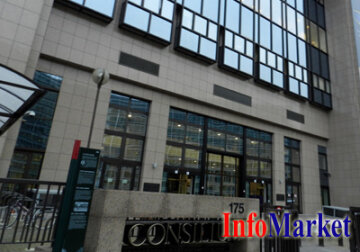
The European Union has helped raise 1 billion euros for the "Solidarity Lanes" that will bring Moldova and Ukraine closer to the unification of theirs and EU’s markets.
The "EU Neighbours East" portal informed about it, noting that the European Commission, the European Investment Bank, the European Bank for Reconstruction and Development and the World Bank Group announced that they were able to mobilize 1 billion euros for the Solidarity Roads. These funds will help improve global food security and support the Ukrainian economy. The European Commission will urgently allocate grants of 250 million euros for the development of the "Solidarity Lanes ". This funding will help improve the capacity of this initiative in the near future through new equipment and reduced waiting times at border-crossing points. In the medium term, the Commission will also mobilize Connecting Europe Facility (CEF) funds and 50 million euros to support the development of the infrastructure needed to further increase the capacity of the "Solidarity Lanes". The EIB and EBRD plan to invest 300 million euros each by the end of the next year. The World Bank Group is preparing an emergency project to repair rail and road infrastructure damaged by the war. Up to $100 million will be allocated for this in 2023. The group is also discussing the possibility of adapting logistics in Romania and Moldova to expand Ukrainian exports and imports. The European Commission recalls that Ukraine annually supplied the world market with about 45 million tons of grain. The "Solidarity Lanes" initiative, created in response to Russia's blockade of Ukrainian ports in the Black Sea, helped to remove from Ukraine 15 million tons of Ukrainian agricultural products (grains, oilseeds, and related products) by road and rail, as well as through ports of the Black Sea and the Danube. This initiative is also the only way to export non-agricultural goods from Ukraine, as well as to import necessary goods such as fuel and humanitarian aid into the country. The European Commission believes that Solidarity Roads also brings Ukraine and Moldova "closer to uniting markets with the EU, while keeping both countries connected to the rest of the world." // 15.11.2022 - InfoMarket







